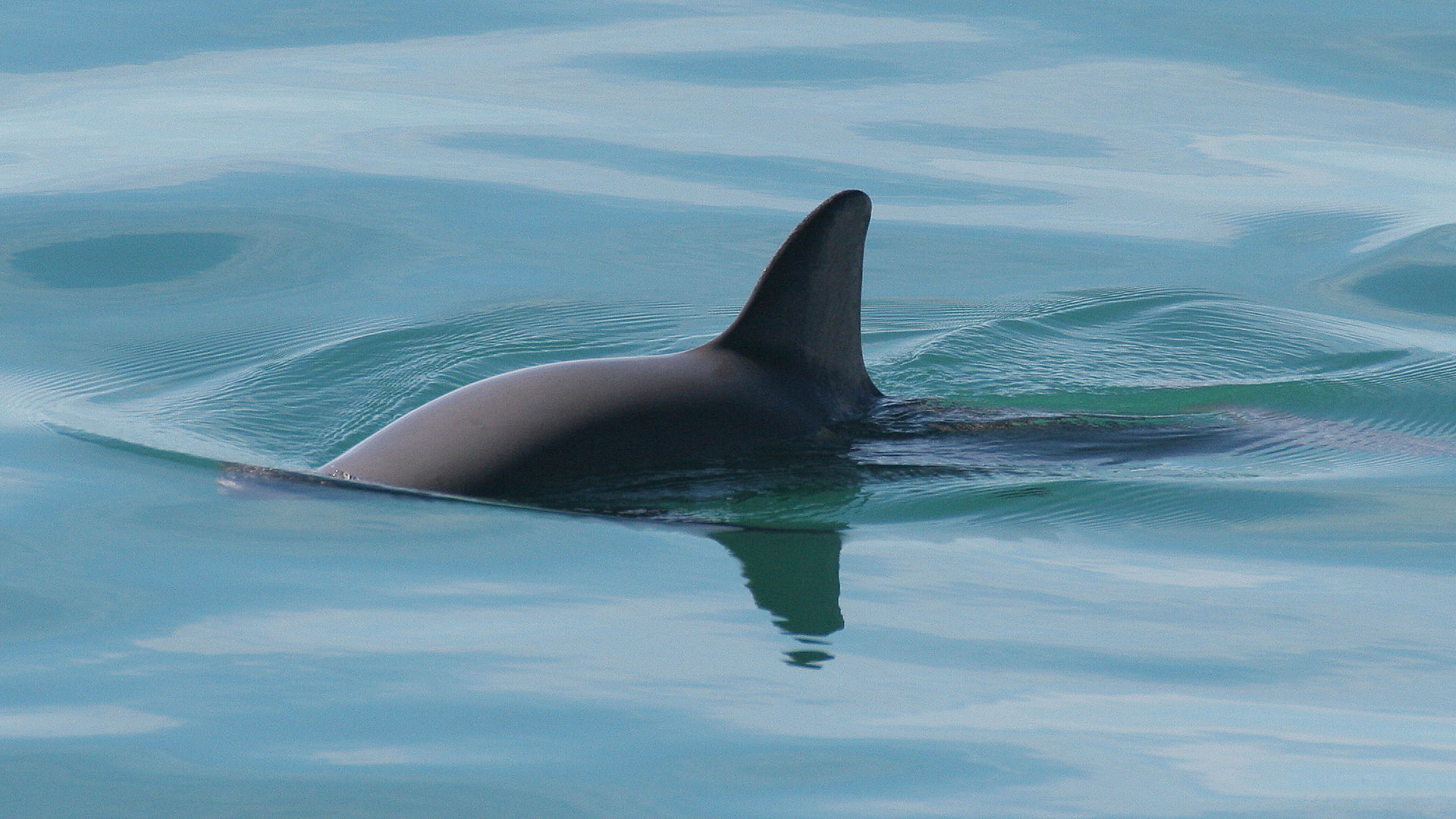 The vaquita is a critically endangered porpoise that lives in the northern part of the Sea of Cortez. It is considered the smallest and most endangered cetacean in the world.
The vaquita is a critically endangered porpoise that lives in the northern part of the Sea of Cortez. It is considered the smallest and most endangered cetacean in the world.
The United States filed the first environmental complaint under the U.S.-Mexico-Canada Agreement (USMCA). It’s calling for a consultation with Mexico over protections for a critically endangered porpoise in the Upper Gulf of California.
The complaint from the U.S. Trade Representative’s office cites Mexico’s failure to stop illegal fishing that threatens the critically endangered vaquita marina. It’s the world’s smallest porpoise and most endangered marine mammal, there are as few as six vaquita left.
The U.S. is calling for environmental consultations with Mexican officials — the first step in the USMCA dispute resolution process. However, if if the U.S. and Mexico don’t reach an agreement, it could ultimately lead to sanctions.
“This is a really big move by the United States,” said Sarah Uhlemann, senior attorney and international program director with the Center for Biological Diversity. “It’s the first time the U.S. has taken this kind of action under the USMCA. And we’re really hopeful that this will prompt serious enforcement action by the Mexican government to save this little porpoise from extinction.”
The Center for Biological Diversity is one of several environmental groups that requested this action last August.
While the U.S. has already placed bans on some seafood from the Upper Gulf of California because of Mexico’s failure to protect the few remaining vaquita, Uhlemann said sanctions under the USMCA could do more.
“The sanctions under the USMCA could be far more sweeping than the ban that exists now,” she said. “We’re not sure exactly sure what the U.S. would ask for or what it would do, but this could really rock the seafood industry in Mexico.”
She added that other actions recent actions by the U.S. in response to illegal fishing in Mexico demonstrates the serious problem with enforcement in Mexican waters.
Restrictions on Mexican fishing boats in the Gulf of Mexico went into place on Feb.7, because of what the National Oceanic and Atmospheric Administration (NOAA) called Mexico’s failure to combat unauthorized fishing for red snapper that is harming Gulf coast fisheries.
In the Gulf of California, the situation for the vaquita is dire. Uhlemann said the little porpoise is “on the knife’s edge of extinction,” and said not only should the U.S. stand for the right for all species to exist, but because the United States is an importer of seafood from Mexico, U.S. consumers are also part of the problem because they purchase seafood captured with gill nets that trap and drown the vaquita.
Mexico has committed to protecting the vaquita, but has long struggled to enforce its own laws in the Upper Gulf of California. The country also officially reduced protections in a fishing-free zone, implementing a sliding scale of protections that only initiates enforcement measures when dozens of boats are repeatedly spotted in the prohibited zone. This administration has also significantly cut funding for environmental agencies and restricted Sea Shepherd’s efforts to remove illegal nets.
“Illegal fishing is out of control in Mexican waters, and the vaquita is paying the highest possible price,” Uhlemann said in a press release. “We’re glad that U.S. government is taking Mexico to task for violating its environmental obligations and threatening the vaquita’s existence.”


By submitting your comments, you hereby give AZPM the right to post your comments and potentially use them in any other form of media operated by this institution.